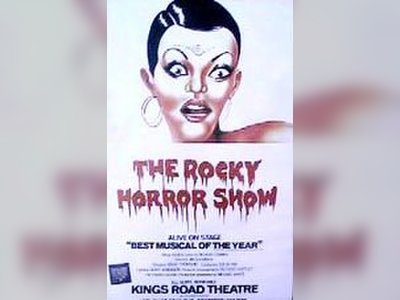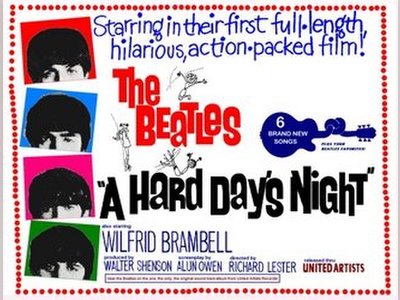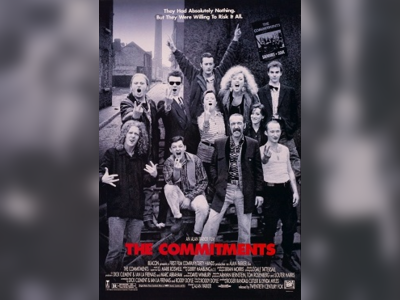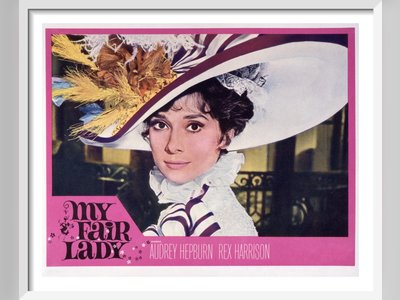British Heritage
Remember, Cherish, Learn.
beta
Oh, What a Lovely War!
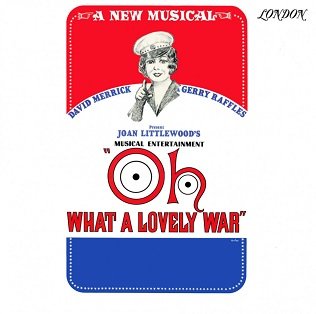
A Satirical Masterpiece and Its Influence on British Heritage.
"Oh, What a Lovely War!" stands as a quintessential exemplification of British theatre's audacious approach to using satire and musical to challenge societal norms and engage in poignant social commentary. Brought to life by Joan Littlewood and her Theatre Workshop in 1963, the production leverages the universally acknowledged and devastating context of World War I to comment on the broader implications of warfare. Not only is "Oh, What a Lovely War!" renowned for its pioneering presentation style and its critical success, but it is also acknowledged for its lasting influence on British cultural heritage.
"Oh, What a Lovely War!" was born out of a radio musical titled "The Long Long Trail," created by Charles Chilton for BBC Home Service. The musical was an emotive tribute to Chilton's father, a World War I casualty, whose name was inscribed on the Arras memorial. Chilton employed facts, statistics, recollections, and period songs from "Tommy's Tunes," a 1917 book cataloguing melodies popular among the war-torn trenches, to paint an ironically grim critique of the reality of war.
Gerry Raffles, Littlewood's partner, was captivated by Chilton's work and proposed its adaptation into a theatrical performance. Despite initial resistance from Littlewood, who despised the glorification of war and military uniforms, she eventually warmed up to the idea. However, she insisted on using pierrot costumes from Commedia dell'arte instead of military uniforms, considering them a "soft, fluffy entertainment mode" that would provide an ironic contrast to the harsh realities of war.
Littlewood's unique production style hinged on the Theatre Workshop's innovative process of improv-based development. The cast members were tasked with mastering different aspects of World War I, such as specific battles or weaponry. These elements then infused the narrative, incorporating excerpts from Alan Clark's military history, "The Donkeys."
The satirical musical made its grand debut at the Theatre Royal Stratford East on 19 March 1963, garnering rave reviews and applause from audiences. Critic Kenneth Tynan titled his review in The Observer, "Littlewood returns in triumph," reflecting the resounding success of the production.
Despite initial resistance from the official censor, the musical eventually made its way to the West End, thanks in part to a commendation from Princess Margaret, who insisted the play's message was long overdue. The ensemble cast, including notable figures like Brian Murphy, Victor Spinetti, and Glynn Edwards, played multiple roles, further emphasizing the interchangeability of soldiers in the face of war.
The production later transferred to Wyndham's Theatre in June 1963 and was later adapted for radio by the BBC. The success transcended the British shores, premiering in the United States at the Broadhurst Theatre on Broadway on 30 September 1964. It was nominated for four Tony Awards, winning for Best Featured Actor.
"Oh, What a Lovely War!" is perhaps best known for its innovative blending of music, satire, and imagery. The ensemble performed in white pierrot costumes and metal helmets, further emphasizing Littlewood's anti-war sentiments. Behind the performers, slides showed war imagery, and statistics were displayed across the stage, starkly juxtaposing the jovial music and satirical performances with the chilling realities of war.
Littlewood ingeniously used sentimentality to draw the audience in, with the first act featuring popular war-era songs like "It's a Long Way to Tipperary," "Pack up Your Troubles," and "Keep the Home Fires Burning." The second act then starkly contrasted this sentimentality with the chilling reality of war, powerfully bringing home the production's anti-war message.
Richard Attenborough's film adaptation of "Oh, What a Lovely War!" in 1969 further propelled the musical into the limelight. The movie, also a musical, marked Attenborough's directorial debut and was one of actress Maggie Smith's earliest film appearances. It won numerous awards, reinforcing the cultural significance and enduring relevance of the original production.
The musical's influence has reached beyond the confines of British theatre, inspiring Australian World War I films and miniseries like "The Lighthorsemen" and "Gallipoli," which used songs from the play to enhance their historical context.
The legacy of "Oh, What a Lovely War!" is intrinsically linked with its daring satirical treatment of war and the innovative use of music and stagecraft. This production challenged the traditional depiction of war, ushering in a new era of socially conscious and politically incisive theatre in Britain. To this day, it continues to shape the British cultural landscape, standing as a testament to the transformative power of theatre.
Conception and Development
"Oh, What a Lovely War!" was born out of a radio musical titled "The Long Long Trail," created by Charles Chilton for BBC Home Service. The musical was an emotive tribute to Chilton's father, a World War I casualty, whose name was inscribed on the Arras memorial. Chilton employed facts, statistics, recollections, and period songs from "Tommy's Tunes," a 1917 book cataloguing melodies popular among the war-torn trenches, to paint an ironically grim critique of the reality of war.
Gerry Raffles, Littlewood's partner, was captivated by Chilton's work and proposed its adaptation into a theatrical performance. Despite initial resistance from Littlewood, who despised the glorification of war and military uniforms, she eventually warmed up to the idea. However, she insisted on using pierrot costumes from Commedia dell'arte instead of military uniforms, considering them a "soft, fluffy entertainment mode" that would provide an ironic contrast to the harsh realities of war.
Littlewood's unique production style hinged on the Theatre Workshop's innovative process of improv-based development. The cast members were tasked with mastering different aspects of World War I, such as specific battles or weaponry. These elements then infused the narrative, incorporating excerpts from Alan Clark's military history, "The Donkeys."
Production Success and Reception
The satirical musical made its grand debut at the Theatre Royal Stratford East on 19 March 1963, garnering rave reviews and applause from audiences. Critic Kenneth Tynan titled his review in The Observer, "Littlewood returns in triumph," reflecting the resounding success of the production.
Despite initial resistance from the official censor, the musical eventually made its way to the West End, thanks in part to a commendation from Princess Margaret, who insisted the play's message was long overdue. The ensemble cast, including notable figures like Brian Murphy, Victor Spinetti, and Glynn Edwards, played multiple roles, further emphasizing the interchangeability of soldiers in the face of war.
The production later transferred to Wyndham's Theatre in June 1963 and was later adapted for radio by the BBC. The success transcended the British shores, premiering in the United States at the Broadhurst Theatre on Broadway on 30 September 1964. It was nominated for four Tony Awards, winning for Best Featured Actor.
Unconventional Presentation and Powerful Themes
"Oh, What a Lovely War!" is perhaps best known for its innovative blending of music, satire, and imagery. The ensemble performed in white pierrot costumes and metal helmets, further emphasizing Littlewood's anti-war sentiments. Behind the performers, slides showed war imagery, and statistics were displayed across the stage, starkly juxtaposing the jovial music and satirical performances with the chilling realities of war.
Littlewood ingeniously used sentimentality to draw the audience in, with the first act featuring popular war-era songs like "It's a Long Way to Tipperary," "Pack up Your Troubles," and "Keep the Home Fires Burning." The second act then starkly contrasted this sentimentality with the chilling reality of war, powerfully bringing home the production's anti-war message.
Legacy and Influence
Richard Attenborough's film adaptation of "Oh, What a Lovely War!" in 1969 further propelled the musical into the limelight. The movie, also a musical, marked Attenborough's directorial debut and was one of actress Maggie Smith's earliest film appearances. It won numerous awards, reinforcing the cultural significance and enduring relevance of the original production.
The musical's influence has reached beyond the confines of British theatre, inspiring Australian World War I films and miniseries like "The Lighthorsemen" and "Gallipoli," which used songs from the play to enhance their historical context.
The legacy of "Oh, What a Lovely War!" is intrinsically linked with its daring satirical treatment of war and the innovative use of music and stagecraft. This production challenged the traditional depiction of war, ushering in a new era of socially conscious and politically incisive theatre in Britain. To this day, it continues to shape the British cultural landscape, standing as a testament to the transformative power of theatre.
- Oh, What a Lovely War!en.wikipedia.org
